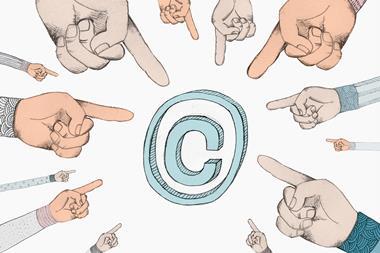Proposed changes to EU legislation would introduce barriers to science and innovation, campaigners say
Early-career researchers are pleased at European leaders’ rejection of a copyright policy that would have introduced restrictions to text-and-data mining of scientific papers.
The European Parliament has voted against the Copyright Directive, amid concerns that the amended legislation would introduce damaging barriers to freedom of information and limit access to research studies and data in Europe.
The vote against the policy is ‘a great victory for democracy’, says Gareth O’Neill, president of the European Council of Doctoral Candidates and Junior Researchers (Eurodoc) in Brussels, Belgium.
Ahead of the vote, O’Neill wrote an open letter to the members of the European Parliament calling them to vote against the Copyright Directive. In the letter, O’Neill says the organisation is most worried about articles 3, 11 and 13 of the proposed policy.
Article 3 would have made it more difficult to text-and-data mine copyrighted scholarly papers; under article 11, press publishers would have ancillary rights to reuse press content with the exception of hyperlinks and scientific periodicals; and article 13 would have required online content-sharing platforms, except for non-commercial ones, to obtain permission or automatically filter uploaded content. O’Neill says the articles are ‘unfortunately misconceived and misdrafted’ and a ‘threat to research and innovation’.
Others had voiced concerns over the proposed changes. An online petition opposing the reforms reached over 900,000 signatures, Italian Wikipedia went dark in protest against the policy in the days leading up to the vote and several academics wrote about their outrage.
‘Researchers fear that ambiguities in how the Copyright Directive may come into conflict with existing copyright, data protection and freedom of expression laws could hinder the work of repositories for data and publications,’ says Brian Cahill, a junior research group leader at the Institute for Bioprocessing and Analytical Measurement Techniques at Heilbad Heiligenstadt, Germany. ‘Such repositories are an integral part of Open Science.’
’It is clear that the copyright directive is a highly contentious subject which has polarised lobbyists and citizens to be either for or against the proposals,’ O’Neill adds. ‘The task at hand now will be for the Members of the European Parliament to organise a structured debate with all stakeholders and engage in constructive dialogue so that the copyright directive has broad acceptance and is a success.’
The next scheduled vote on the Copyright Directive at the European Parliament is in September.












No comments yet